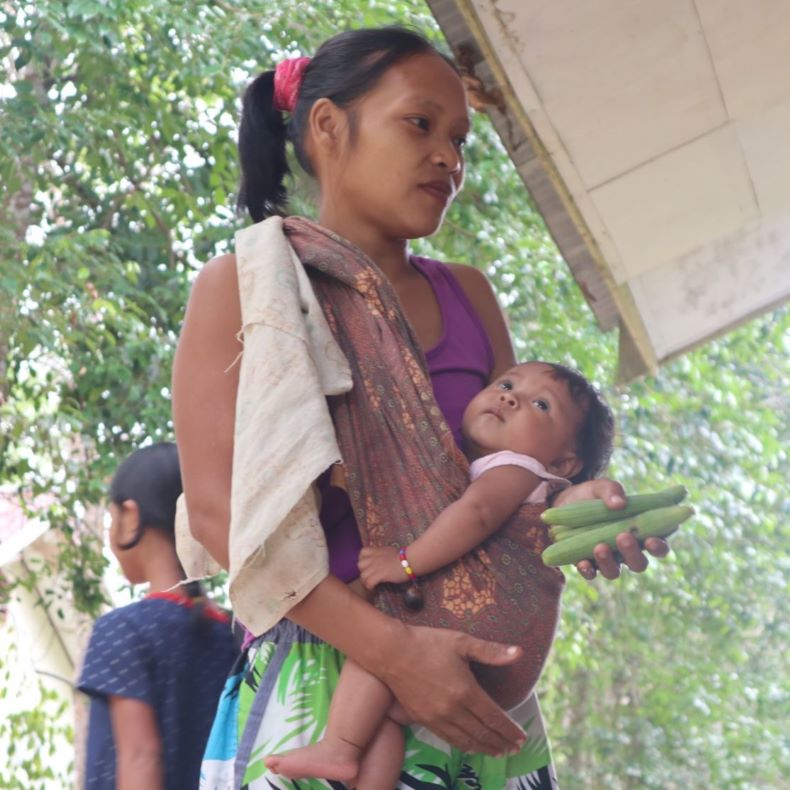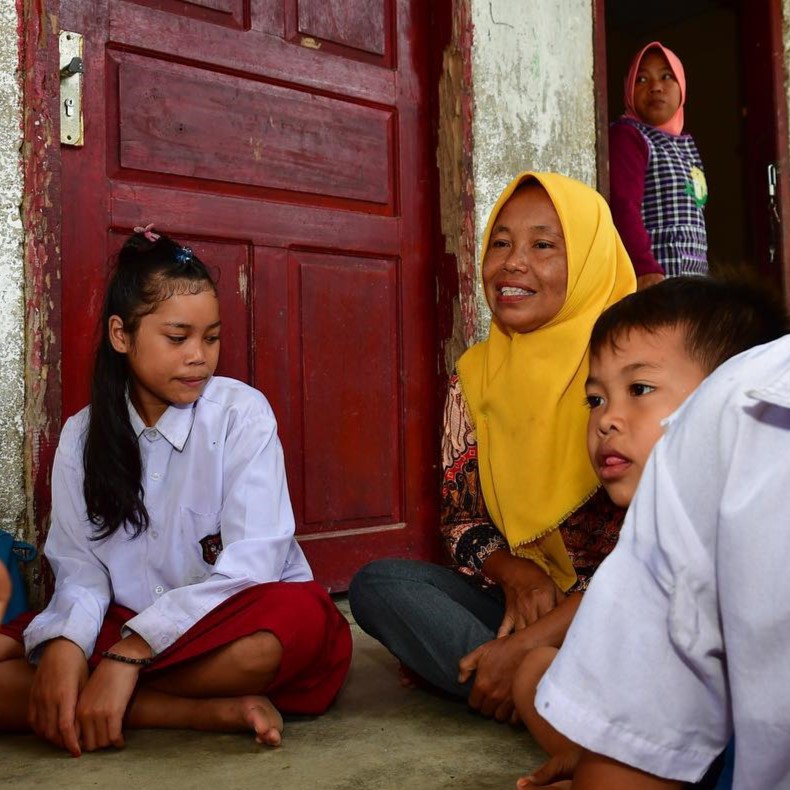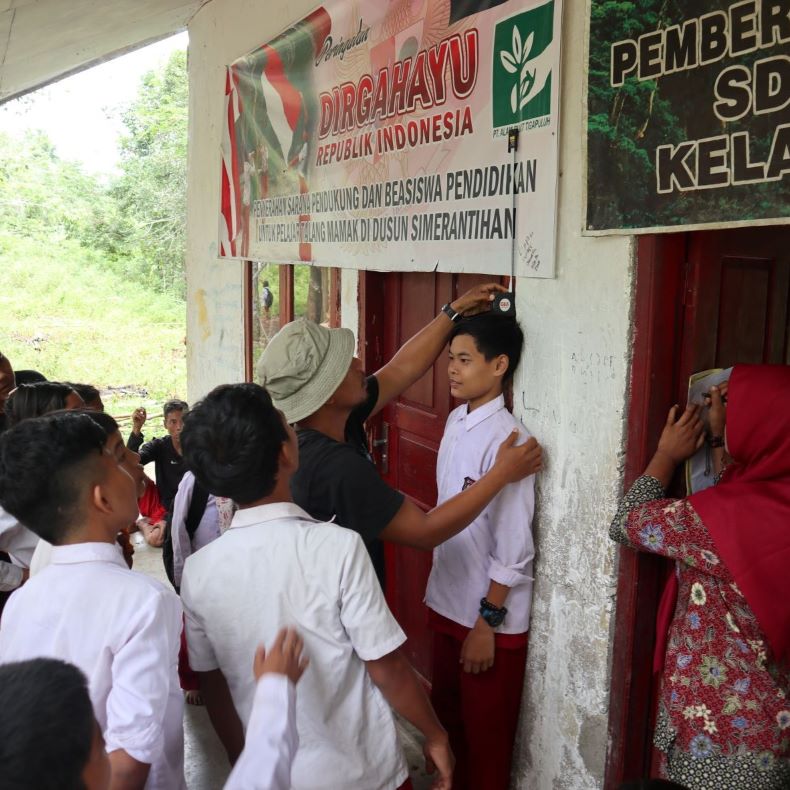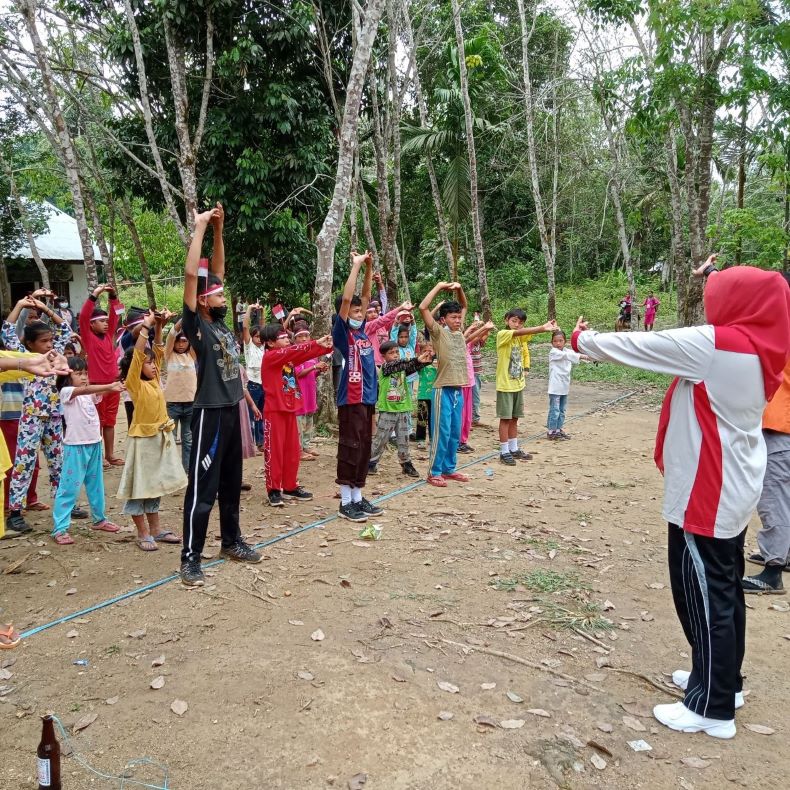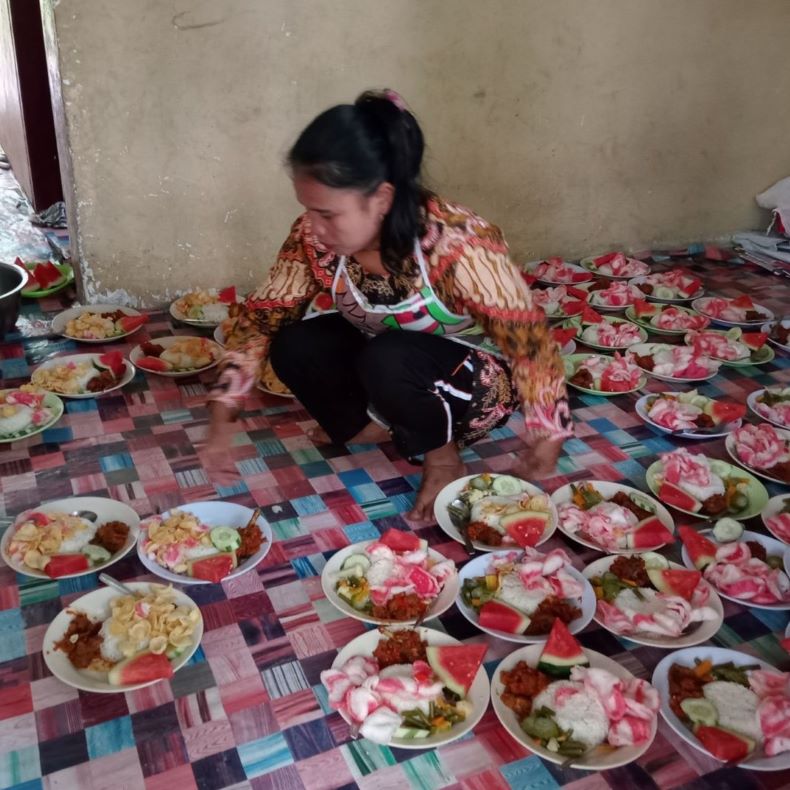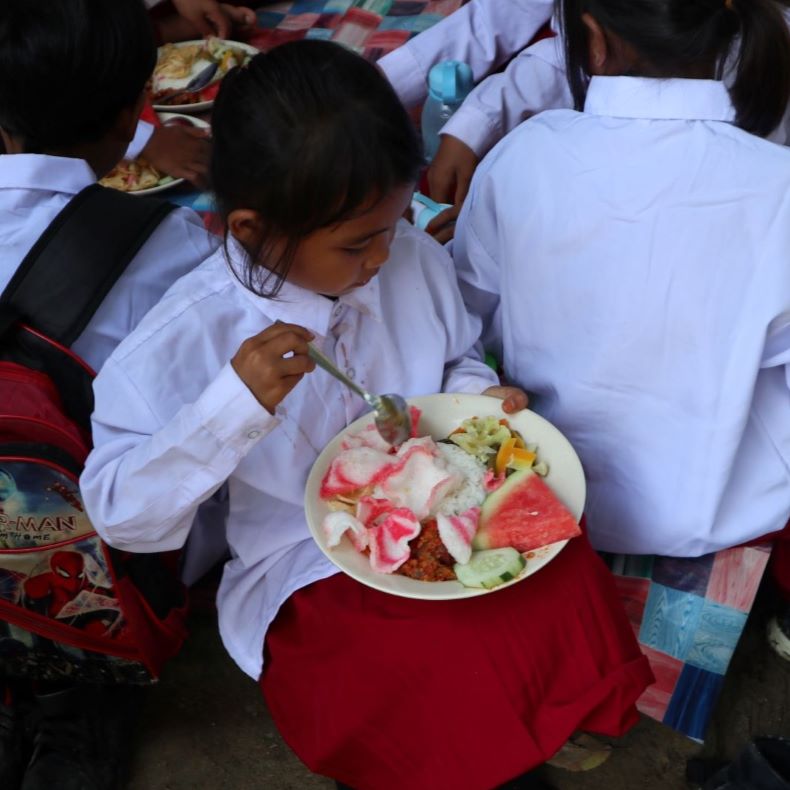On 9 August each year, we recognise International Day of Indigenous Peoples, and this year we have a story about big changes taking place in a small community in the Bukit Tigapuluh Ecosystem. Living within the forest, the Talang Mamak community is intimately connected with the ebb and flow of the forest, the rivers, and the wildlife, but as a poor community they are subsistence farmers who sometimes encroach on the forest to supplement their food and income.
There is only one road into Simerantihan hamlet, where the Talang Mamak community live. This dirt road is often damaged when it rains and vehicles must cross two rivers, making it challenging to reach the village. In addition to walking and motorbikes, the only access into the village is a four-wheel drive vehicle.
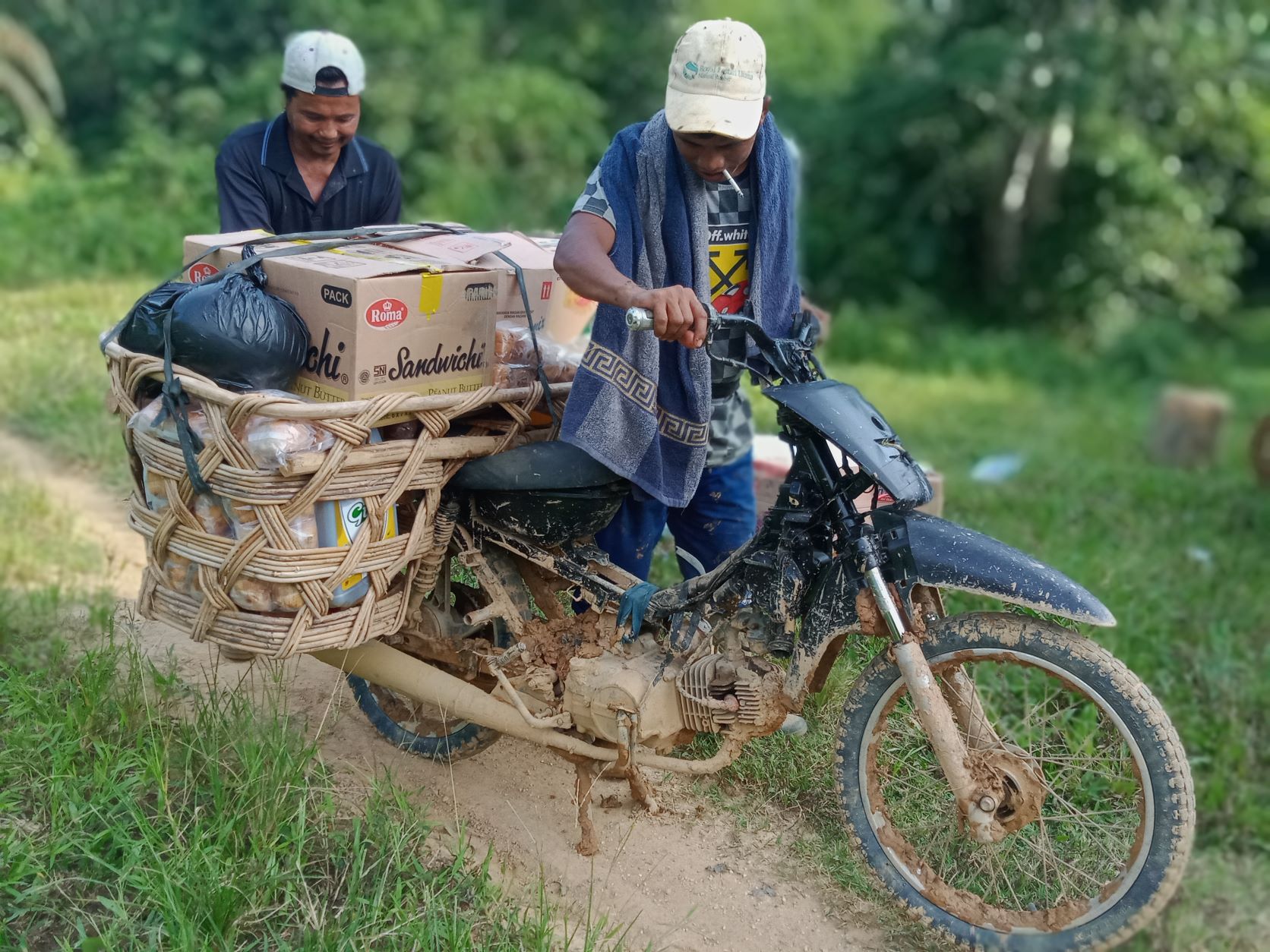
(Above: the motorcycle taxi provides an income for some of the community members, especially during floods when the roads are impassable)
The community lives within the Bukit Tigapuluh landscape that we manage in partnership with Frankfurt Zoological Society and the Ministry of Forestry and Environment. Their main livelihood is planting rice in the fields and growing vegetables and secondary crops, with occasional income from tapping rubber sap or catching fish in the river. The main risk for the forest is that some of the families clear the forest for their gardens or hunt wildlife to supplement their food sources, especially when times are tough.
One of the ways we protect Bukit Tigapuluh and the wildlife living within the forest is to work with and support this small community. In the village, the school is one of the few public buildings, and it’s here that we provide support - to the children of the community. This is the third year we’ve provided the School Food Program, and the impact on the children and the broader community is already clear.
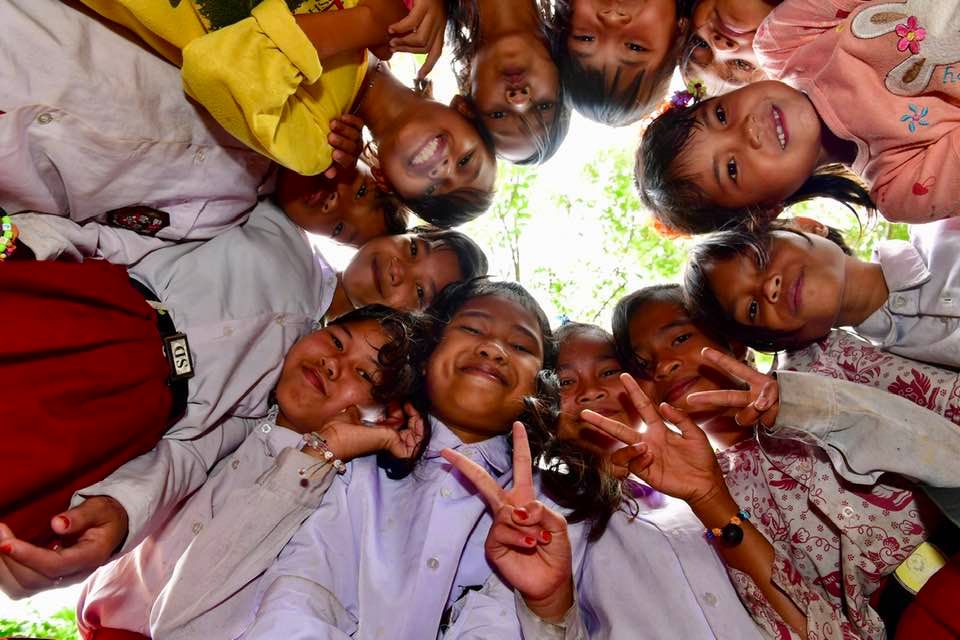
The children are learning better, staying at school longer, and their grades are improving. The teachers report smoother lessons, and their own enthusiasm and dedication has increased. Parents no longer worry about sending their children to school, fearing that teachers will be absent or that learning will be interrupted. Since we started the program, twelve students started their education in Grade 1, and four have completed elementary school and gone on to high school. This is a huge achievement for this small community, as every year at school changes the trajectory for a child in terms of their future income, access to resources, and ability to protect and conserve the forest.
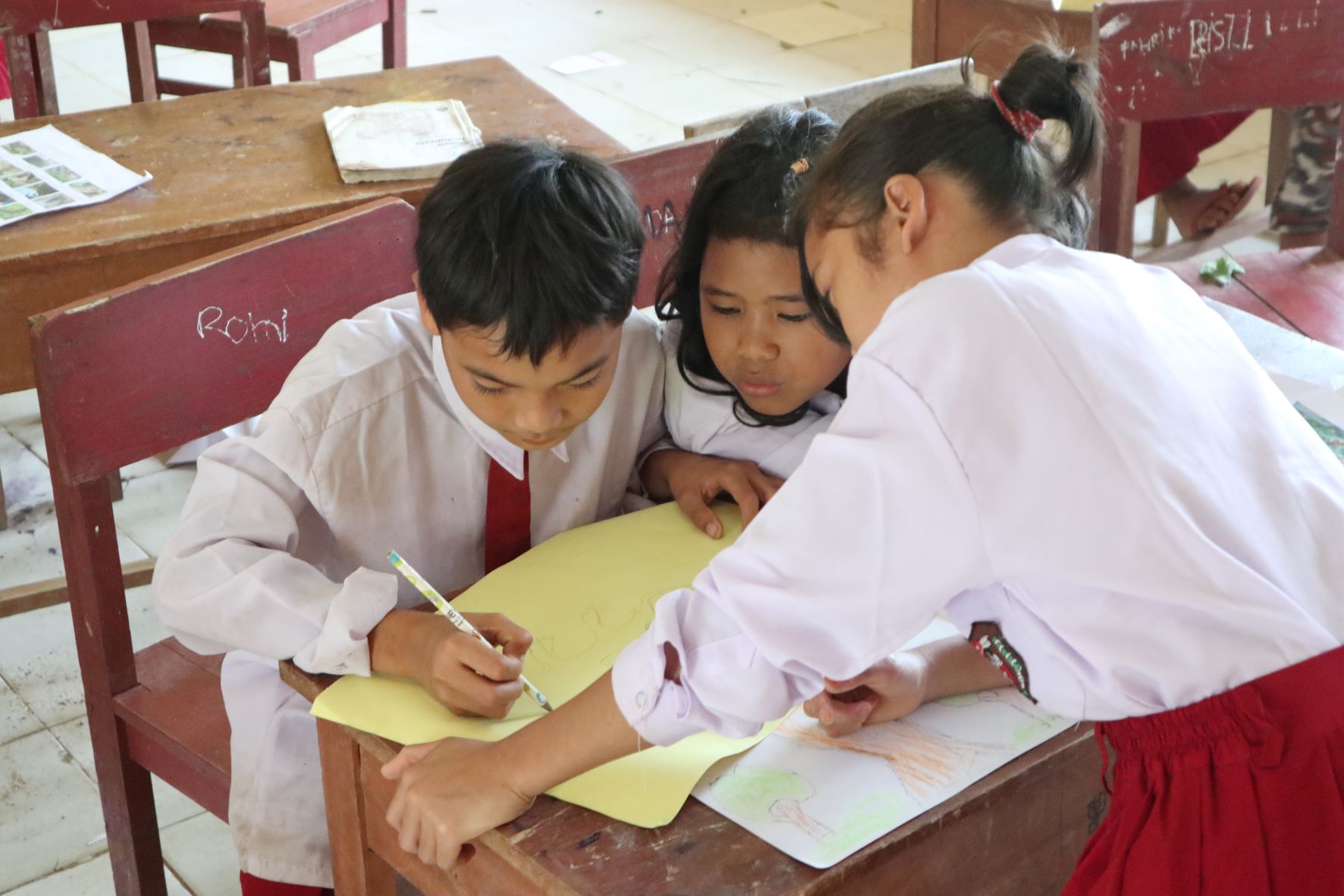
The impact is felt beyond the two classrooms of this small school, into the fields of the farmers, as at least a third of the food the children eat is grown by the Talang Mamak people, which is increasing their income and their long-term economic stability. Some of the foods purchased from the community include vegetables, fruit and coconuts. The menu must be flexible, nutritious and full of variety, which can be a challenge when the road is flooded and one of the reasons that buying from the Talang Mamak families is such an important part of the project. The food is prepared daily using fresh ingredients, cooked by local Talang Mamak community members, providing yet more economic wellbeing and opportunities.
Out of the 210 people in the Talang Mamak community, at least 57 (over a quarter) benefit directly from this project, either as food providers, fuel providers, cooks, or motorcycle taxis for distributing food ingredients to the Simerantihan school. At least ten ingredients each day are obtained from the community, and when the roads and rivers are in bad condition, the motorcycle taxis become the main source of transport, which again increases the income for the community.
The children are not only fed each day, but they also have visits from health workers on a monthly basis. Medical checks are carried out, and in one semester, there was a noticeable improvement in the weight and growth of the children. This is then reflected in their improved performance at school, including increased achievements in their work and a higher percentage of school attendance.
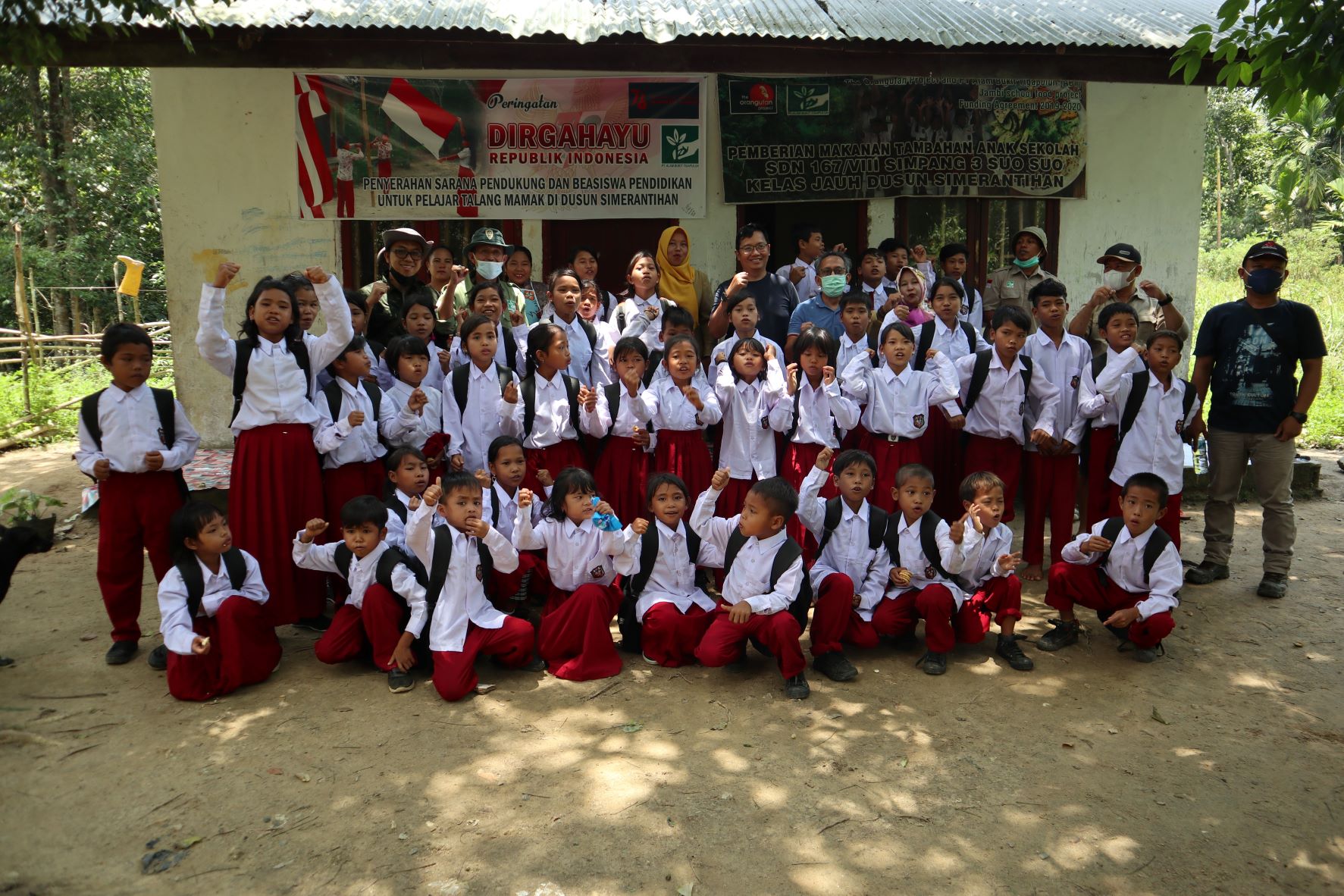
While we’re protecting and saving wildlife from extinction, we can’t afford to ignore the local indigenous people, who are living the most precarious lives on the forest edge, and whose entire livelihoods are threatened by rampant deforestation. Feeding 53 children may seem like a small thing to do, but this project has long-term impacts on the community’s relationship with the forest. Already, we’re seeing a decrease in deforestation in the area and increases in engagement with the village leaders. Every step we take to protect the forest and the communities who live within it is taking us closer to our vision of securing the future for orangutans.
Read more about our Talang Mamak Indigenous Community Support program here.
Below you can see the children eating, their lunch being portioned out for them, the children being measured during the medical check-ups, morning exercises, and some of the local Talang Mamak community at the school.
